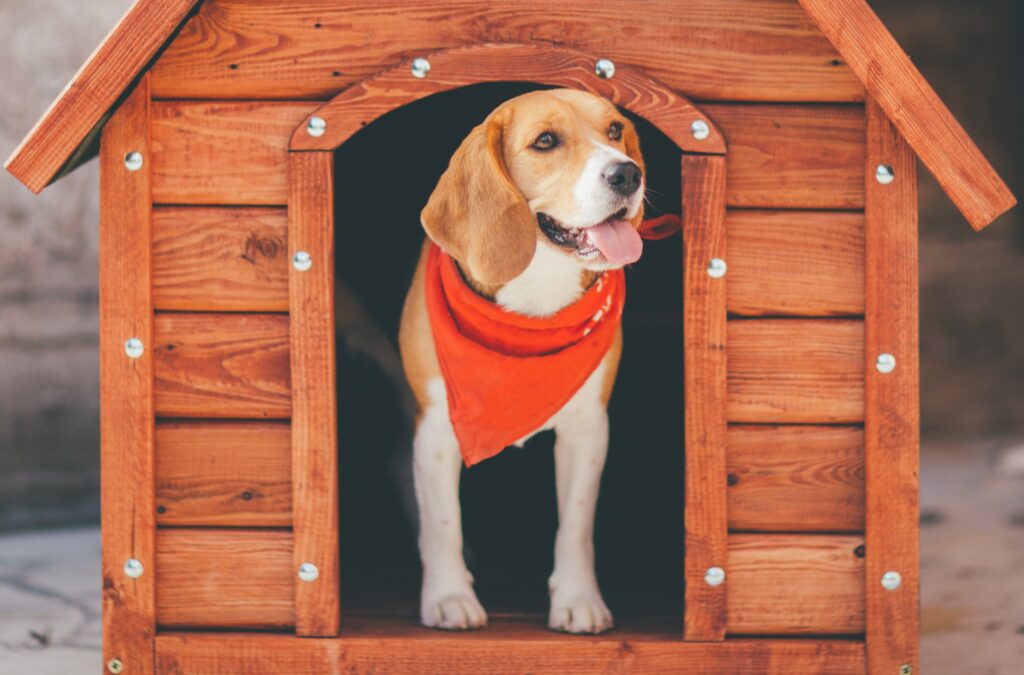
In the Doghouse: Homeowner Tips
Studies show that pet ownership is at an all-time high and industry spending increases with every passing year. It’s been estimated that by 2019, the pet industry will hit $90 million in sales. According to the 2015-2016 APPA National Pet Owners Survey, 65 percent of U.S. households own a pet, which equates to 79.7 million homes. This means that chances are many of your clients have a dog.
Read on for tips you can share with your clients about keeping the home dog-safe.
Fencing. A fenced-in yard is essential for dog owners. Your fence should be sturdy, at least 6 feet tall and escape-proof. Fence styles and budgets may vary, but it’s widely recommended to have a solid fence. Solid fences can reduce barrier frustration, alarm barking, and will keep outside animals from coming into your yard.
Crate, kennel run or exercise pen. Inevitably, there are times when your dog needs to be safely contained – during an open house, for example. Having a safe containment area that your dog enjoys and is familiar with is an invaluable feature in your dog’s home.
Eliminate hazards. Inspect your home and yard for potential dangers to your dog that could result in choking, strangulation, electrocution, suffocation or poisoning. These can be even more common during home renovations, so always double-check the home and yard during and after repairs and remodels.
Other things to tend to year-round include shortening window cords, covering wires, securing loose boards, hammering down nail heads, and restricting access to areas that harbor poisonous items, such as the garage, cupboards and under the sink.
Pet-scape your home and yard. Identify which indoor and outdoor plants are toxic to dogs. Fertilizers and insecticides are hazards and commonly factor into toxic reactions in dogs. There are many resources available online which list the most frequently encountered poisonous plants and products.
Decorate with leashes. Exercise is a key ingredient to your dog’s physical and mental well-being. A wall-mounted pet organizer that holds your dog’s collar, leash, doggie bags, treats and other items will keep necessities tidy and within arm’s reach, and can offer a nice decoration in your home.
Mind the stairs. As dogs age and arthritis makes getting around more difficult, a ramp is a great solution for mobility ease. Dog ramps come in various styles and heights, and if you’re a DIYer, you can custom-build one to your exact specifications.
Tips for New Construction. If you’re planning your home with your pets in mind, go with flooring material that’ll clean easily, withstand scratches, and provide decent traction. Carpets are more challenging to keep clean, especially light-colored rugs since they trap pet hair, dander, allergens and dirt.
There are no shortages of dog-friendly accommodations: homes are being designed and renovated with the comfort of resident dogs in mind.
Home pet spas are on the rise. These pet spas are built as add-ons or are renovated into existing rooms in the house, oftentimes within mud rooms or bathrooms. There are as many styles and varieties as the imagination can conjure up. Typically these spas are in close proximity to the outdoors and contain washers/dryers. They’re often decked out with hot and cold water, enclosed shower areas with easy walk-in access, flexible shower heads, cupboards for necessities and easy-to-clean flooring. They are considered a handy luxury that any dog owner can get behind.
